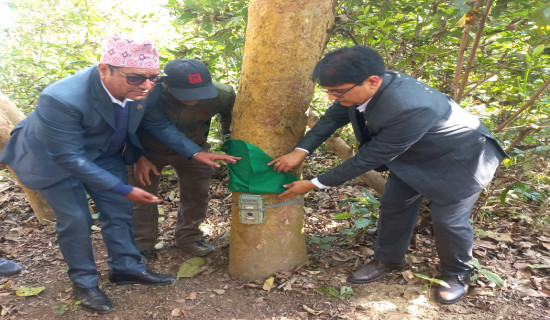- Tuesday, 16 December 2025
Let Mind Wander
Moshe Bar
Our minds are never idle. When not focused on doing a specific task or achieving a goal, we daydream, fantasize, ruminate, reminisce about something in the past, or worry about something in the future. In fact, research with thought-sampling techniques has shown that an average of 47 percent of our time is spent with our mind wandering. Research also suggests that mind wandering is not time wasted but a constructive mental tool supporting creativity, problem-solving, and better mood. Mind wandering can be negative and obsessive and present obstacles to accomplishing goals. Left to their own devices, people may gravitate towards the negative. But that is only part of the story. Many reveries are welcome, playful, creative daydreams to be nourished. Mind wandering allows us to learn from our imagination. Consequently, mind wandering is critical to “creative incubation,” the background mental work that precedes our insightful “Aha!” moments.
In my lab, we have found that broad and unrestrained mind wandering can also promote better mood among people with mental health disorders such as anxiety and depression. Memory stores actual experience. It can also hold the outcome of experiences we imagine or simulated scenarios.
I’ll give you an example. While on an airplane flight once, I was reviewing a paper, and my mind drifted until it landed on the emergency door, which triggered the following simulation: What if the door suddenly opens while we are in the air? I will need a parachute, I thought. I could probably use the airplane blanket on my lap, but I will not be able to hold on to it in the strong wind—it needs holes. I can use my pen to make the holes. And so on. This story is far-fetched and funny, but nevertheless, I now have, from an imagined experience, a script stored in my memory that would be helpful should the unlikely event ever happen. By fabricating possible future experiences, we have memories that we can call on to navigate our lives and fall back on to guide our behaviour in the future.
One of the most meaningful developments in recent neuroscience is the serendipitous discovery of the brain network that hosts our mind wandering: substantial cortical regions clustered together in the brain’s “default mode network.” Wandering is what our brain does by default. So, logic dictates that if our brains dedicate so much energy to mind wandering, mind wandering should play an important role. There is a trade-off, though. With all the benefits of creative thinking, planning, decision-making, and mood, mind wandering takes us away from the present. Evolution seems to have prioritised our ability to survive and flourish over our ability to cherish the moment.
I remember having lunch at a cafe in Tel Aviv with a visiting professor from Stanford. At one point in our conversation, he told me he had once heard something that had completely changed him, how he thinks, and how he lives his life, and he wanted to share it with me. I have no idea what it was.
Despite his dramatic introduction, my mind drifted far away as he spoke. I was too embarrassed to tell him I hadn’t caught what he’d said once I realised what had happened. I can only imagine how odd he must have thought it was that I didn’t comment meaningfully on what he’d said but quickly changed the subject. Happily, though, I can report that my mind had wandered to something interesting in my own life. Perverse as our mind wandering can be, at least it generally does have a purpose.
New ideas, inventions, and plans you make while your mind wanders are all products your mind created. While we cannot direct our mind as to what to wander about, we can strive to fill the mental space of possibilities with what we would have liked to wander about, either because we seek new ideas, because it makes us feel good, or both.
Before I go on a long walk or do any other activity that is not overly demanding, I ask myself what is on my mind. If it is something like the bills I just paid or an annoying email, I try to replace it with something I’d rather spend my mind-wandering stretch on instead. I might reread a paragraph that caught my interest recently. Or I might bring back a problem that engaged me before I gave up on it or warm up the idea of an upcoming trip so I can fine-tune the details as I simulate the future with my mind.
-- Psychology Today

















